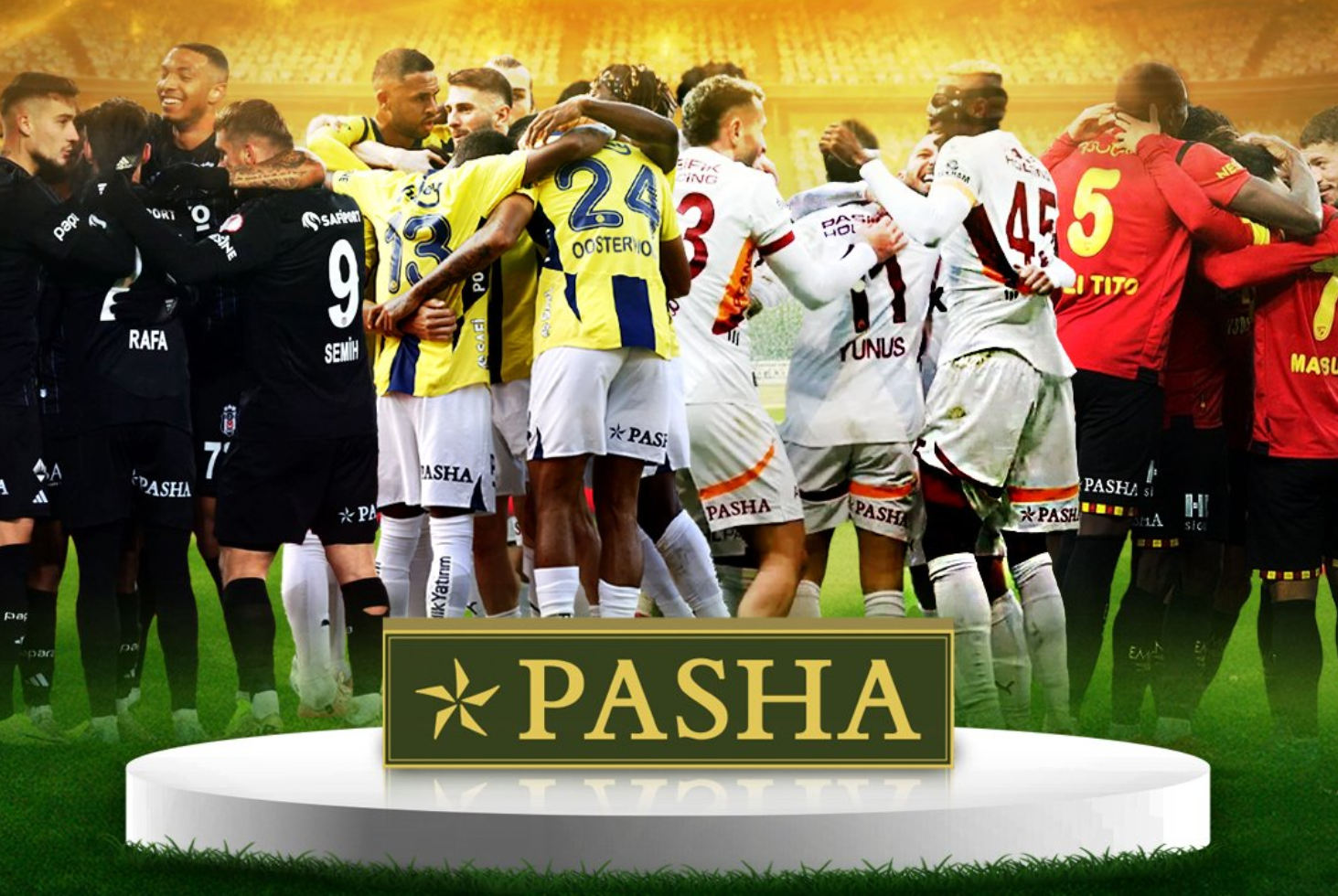Turkish Football’s ‘Big 3’ Partner with Pasha Group Amid Alleged Betting Links
By Erdem / 07/03/25
 Fenerbahçe, Beşiktaş, and Galatasaray—three of the most prominent football clubs in Turkiye—have signed major sponsorship agreements with Pasha Group, a casino operator based in Northern Cyprus. While these deals provide significant financial support for the clubs, the partnerships raise questions due to Pasha Group’s alleged connections to illegal online betting platforms.
Fenerbahçe, Beşiktaş, and Galatasaray—three of the most prominent football clubs in Turkiye—have signed major sponsorship agreements with Pasha Group, a casino operator based in Northern Cyprus. While these deals provide significant financial support for the clubs, the partnerships raise questions due to Pasha Group’s alleged connections to illegal online betting platforms.
Financial Support or Ethical Dilemma?
Fenerbahçe was the first to announce its partnership with Pasha Group during the 2022-2023 season, featuring the company’s logo on the back of their shorts in domestic competitions. Beşiktaş followed with a similar agreement, both emphasizing that such sponsorships were crucial for maintaining financial stability.
However, Galatasaray initially criticized these partnerships, highlighting the risks of associating with a company whose name has been mentioned alongside illegal betting operations. The club’s Vice President, Niyazi Yelkencioğlu, openly questioned the ethics behind these deals.
“When you search Pasha, what comes up? A gambling company. Who’s involved in illegal activity then? Us, or them?”
— Niyazi Yelkencioğlu, Galatasaray Vice President
Despite this firm stance, Galatasaray later signed its own sponsorship deal with Pasha Group, leading to public surprise and raising concerns about consistency in the club’s approach to ethical sponsorships.
GrandPashaBet and Ongoing Concerns
Pasha Group insists that it operates solely in the legal hotel and casino business. Yet, betting platforms such as GrandPashaBet, which carry the “Pasha” name and are considered illegal in Turkiye, list these clubs—Fenerbahçe, Beşiktaş, and Galatasaray—as sponsors on their websites. The alignment of these sponsorships with illegal betting operations remains a gray area.
Additionally, Pasha Group’s branding has been visible in contexts related to illegal betting promotions, further complicating public perception. The group denies any involvement with illegal betting, maintaining that its activities are limited to Northern Cyprus and fully legal there.
A Growing Debate in Turkish Football
Although there has been limited public criticism so far, the situation highlights a growing tension between financial necessity and ethical responsibility in Turkiye’s football industry. These sponsorships bring in essential funds, but at what cost to the integrity of the sport?
As the financial pressures on football clubs increase, such partnerships may become more common—but so too will the questions they raise. In an environment where illegal betting is tightly controlled by the state, football clubs’ connections to companies even indirectly linked to such activities deserve closer scrutiny.